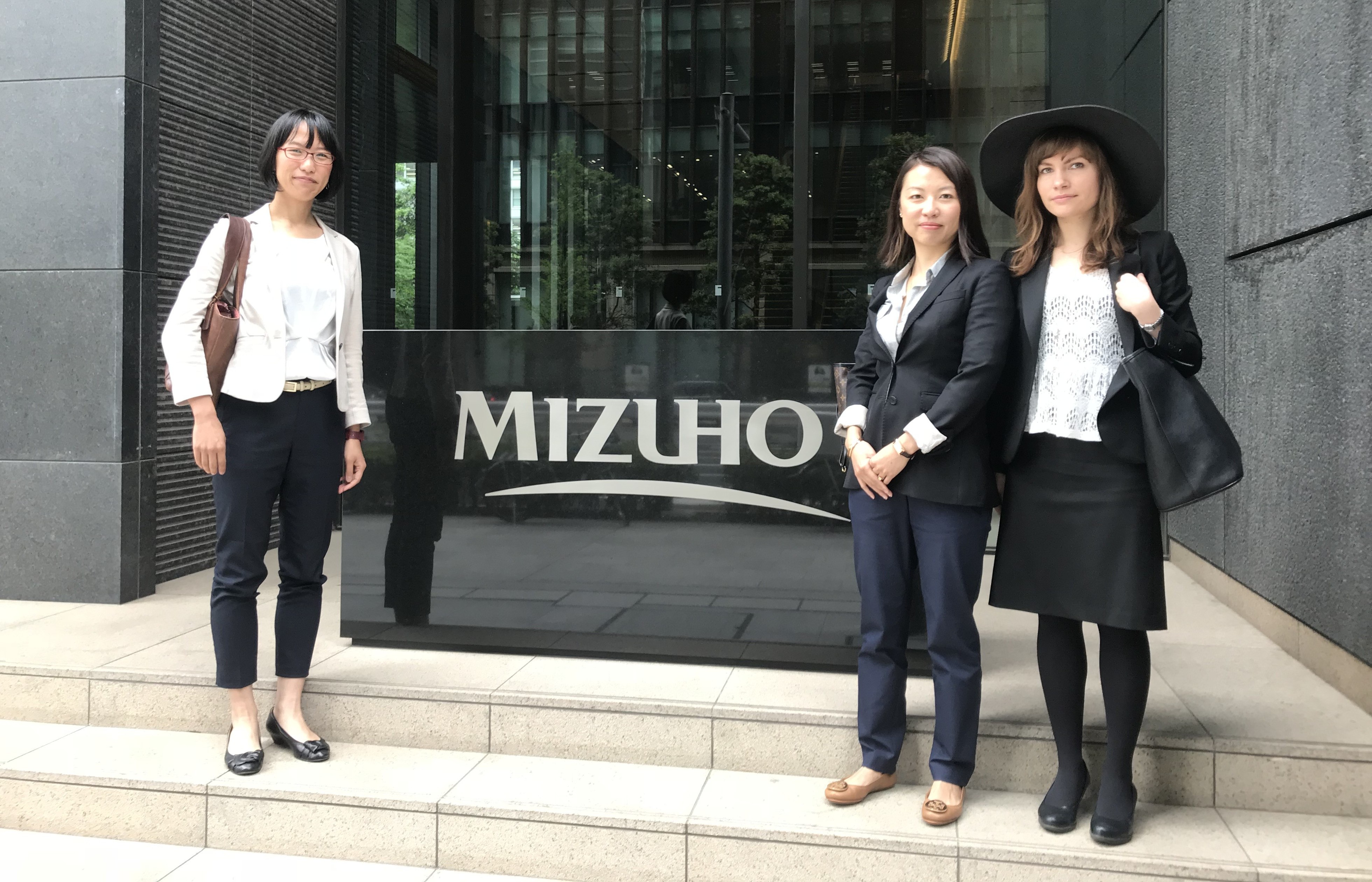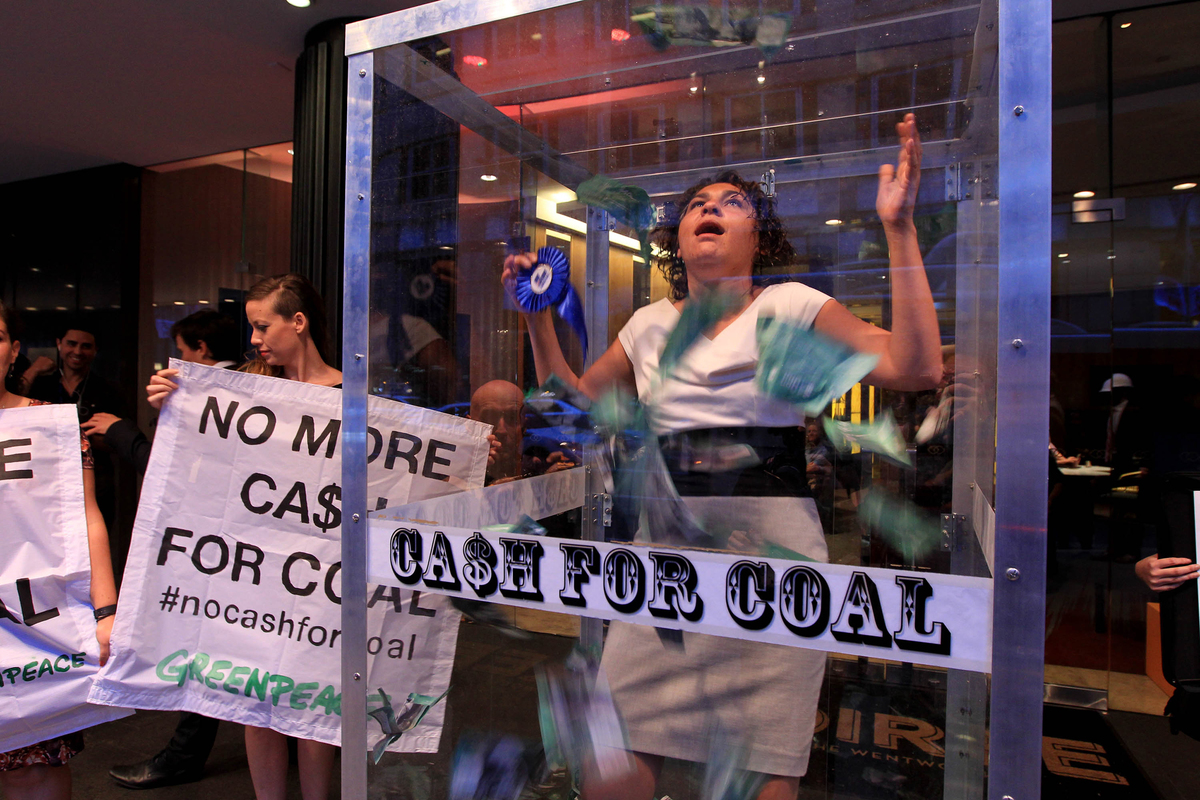
It’s hippies, but not as you know it. Greenpeace campaigners Hisayo Takada, Hanna Hakko and Marina Lou present a briefing on Japanese banks and climate change to Mizuho bank in Tokyo, Japan.
This week, from Tokyo to New York, you might catch small groups of peaceful activists outside offices of the Japanese mega bank, Mitsubishi UFJ. They’re there because they want to point out that Mitsubishi, as well as being one of the largest investors in renewables, is one of the largest funders of new coal projects.
Let’s be honest, banks and and investment firms haven’t always been natural homes for environmentalists. But, increasingly, we’re seeing demands across the spectrum for accountability and transparency over where money is invested. Ordinary people want better visibility and more of a say in an industry that, for a long time, has felt impenetrable.
We know pensions aren’t as interesting as penguins, and we also know that the stunning forests we work tirelessly to protect as an organisation are easier to visualise than matters of finance.
But here are the top five reasons why, if you really do care about the environment, it’s worth buckling up and looking into cash flow.
1) I ain’t saying you’re a golddigger
Globally, 5 trillion USD is still invested in fossil fuel companies. Yes, 5 trillion. And as long as the cash keeps flowing, you know they’ll keep digging it up.
2) Money to burn
Everyone, from the British Medical Association, the World council of Churches, to Stanford University, agrees that a dollar invested in fossil fuels is a dollar lost.
But coal, oil and gas have dominated our global economy for so long, and have such a stranglehold, that changing course is like turning around a giant tanker.

Greenpeace Australia activists set up a ‘Cash for Coal’ gameshow booth at the annual awards ceremony for the mining industry (2015)
3) Money changes everything
Things are starting to shift. 884 institutions worth over $6 trillion USD have committed to taking their money out of coal.
This means we can actually start to transform the economy into one built on clean, sustainable energy – instead of fossil fuels.
4) Spend your money wisely
Some of you might have investments here and there. You might have insurance for your car or house, have money saved in a bank or your employer has put some of your income away into pension funds for you to access when you retire.
Ask how it’s invested. You have the power to help shift our economy in the right direction.
5) The money will roll right in
A transition to a low carbon economy offers an estimated $89 trillion investment opportunity.
Market forces continue to show that new energy economy is not only a growth sector, but continues to outperform fossil-fuel based energy. You do the maths.
The financial system is very opaque right now, so all this might take some digging.
But, as your mum also said, sunshine is the best disinfectant. Share this blog with your family and friends so that they can start thinking about where their money is too.
If you are the savvy finance type, think about investing in a sustainable index. And if you do have shares in fossil fuel companies, use your voice as a shareholder and be an activist in the boardroom! Greenpeace is working with shareholder activists all over the world to turn their voices into megaphones.
Last but not least, if you have read this far, you have already done well. Pat yourself on your back.
Marina Lou is a Global Climate and Energy Finance Campaigner with Greenpeace International, Juliet Perry is a Content Editor with Greenpeace Asia Pacific
